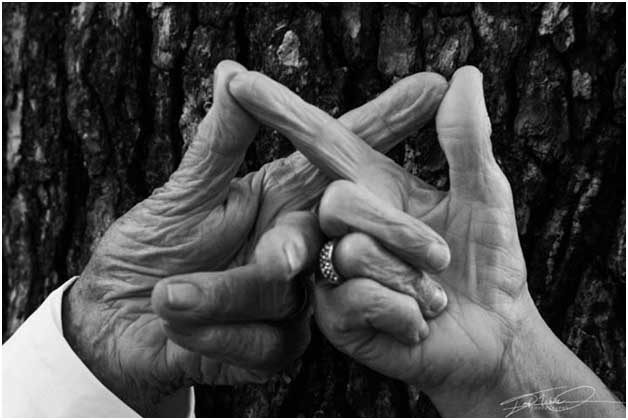Pragma Love
What is Pragma love? Pragma love is also called Pragmatic love, or Enduring Love. This is the kind of love that values practical aspects of a relationship as the most important and driving force. This can mean that the pragmatic lover weighs up what they consider to be important traits for their relationship and their partner, and bases their view of whether love is desirable or not on whether there are sufficient reasons for it to be useful and valuable to them.
Pragma love differs greatly from impulsive romance but still holds value. Unlike chaotic affairs, pragma love endures and lasts beyond initial romance.

The pragmatic lover will often have a very clear idea of the kind of person they would like to have as a partner. Their idea of what their partner should be can be precise down to very exact physical features, character traits, lifestyle and outlook. The reasons the pragmatic lover has chosen these qualities for their ideal partner are being they are the qualities the pragmatic lover believes will create the very best possible relationship.
This also means the pragmatic lover is very unlikely to stray from their ideal idea of a lover to engage in casual romantic encounters, as they see no need or value in these kinds of relationships which have no future.
Pragma Love Endures Over Time
Being a pragmatic lover has benefits: choosing qualities for an ideal partner based on sustaining long-lasting relationships. Doubts diminish when meeting the right person as they’re confident it will work.
However, drawbacks exist. Pragmatic lovers may impose predefined roles on partners, causing discomfort and disappointment if they feel misunderstood. Love reveals deeper aspects over time, potentially contrasting initial impressions.
Disappointment may arise if partners don’t match expectations, leading to early relationship issues. Pragmatic lovers find satisfaction in usefulness and practicality, fostering lifelong, fulfilling relationships.

Pragma Love Can Be Described As Convenient
Pragma love prioritises convenience and instant compatibility, minimising the need for mutual adjustments.
Expecting perfect compatibility in new relationships is common, but often stems from temporary flexibility in the honeymoon phase.
Pragmatic lovers choose partners based on desired traits and compatibility with their own. They seek value and perfect functioning in relationships, aiming for common good or future ambitions.
Pragmatic lovers foresee and navigate obstacles, maintaining focus on long-term goals, ensuring relationship resilience beyond initial stages.
Shared goals are crucial to avoid miscommunication and confusion, ensuring alignment and understanding between partners. Shared goals strengthen relationships, fostering fulfilment and longevity, with resilience against potential challenges.
In such relationships, the end goal may overshadow the individuals, turning the connection into a practical partnership over romance. And what occurs when one reaches that end goal?

Pragmatic Love Can Lead To A Feeling Of Burden
In such cases, a sense of trade or entitlement may arise, leading to resentment and unequal partnerships. This practical mindset can neglect romantic understanding and lead to toxic relationships. However, cultures with arranged marriages or community-focused societies value such considerations to ensure functional relationships. Relevant factors include income, background, beliefs, skills, ambitions, temperament, and family goals.
In Jane Austen’s Sense and Sensibility, Marianne exemplifies pragma love, focusing on romance rather than practicality, unlike her sister Elinor.
There are several excellent examples of pragma love in popular culture, and perhaps the best of these is demonstrated in the Jane Austen novel Sense and Sensibility. One of the central characters, Marianne, is initially swept away with romantic feelings towards the charismatic Will ought by, taking into consideration none of the more practical aspects of their courtship. Marianne is portrayed as having more sensibility’ (which can be called Mania) than sense, unlike her more controlled sister Elinor who is the sense’ in the dynamic.
This is to Marianne’s detriment when she fails to look into his background or examine his motives and intentions towards her, resulting in her near ruin in the eyes of society. When Marianne assumes his romantic gestures are all she needs to consider, she finds herself made a fool of, having assumed that a proposal would be forthcoming, and puts her reputation on the line by behaving as though they are already engaged. This leads to a chaotic and exciting whirlwind romance and a devastating letdown, before a broken-hearted Marianne learns her lesson.
Marianne’s style of love then becomes pragmatic as a result of this trauma, and she weighs up the benefits of alternative suitor Colonel Brandon. With the approach of a pragmatic, Marianne notes evidence that the Colonel can provide stability and security, that he has demonstrated the reliability of his love for her, and that she would have a more peaceful and long-lasting union with him than she had with Willoughby.
Pragma love serves as an exemplary model, often proving more rewarding and fulfilling than alternative love styles.
Modern Day Pragmatic Love
In the modern dating scene, pragmatic love thrives. Dating apps distill potential partners into practical details, aiding pragmatics’ clear preferences.
However, reliance on such practicalities can lead to missed opportunities and rigid expectations. Pragmatics assume self-awareness, potentially overlooking true compatibility.
Yet, when a pragmatic lover finds peace within themselves, relationships become sources of great happiness and contentment.


